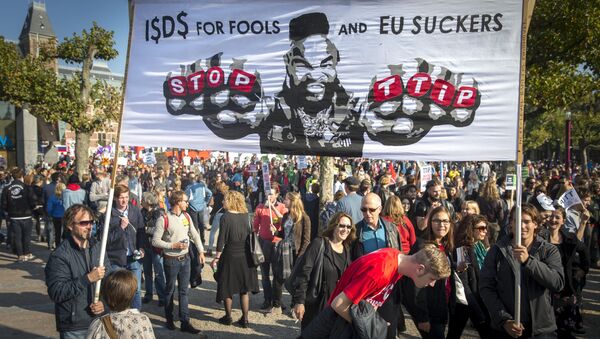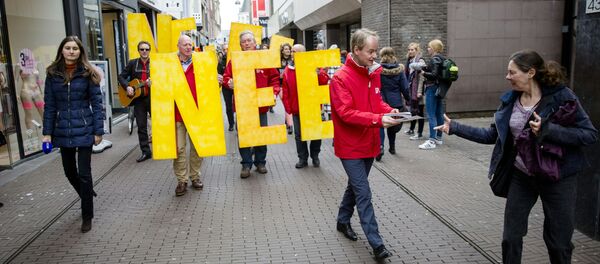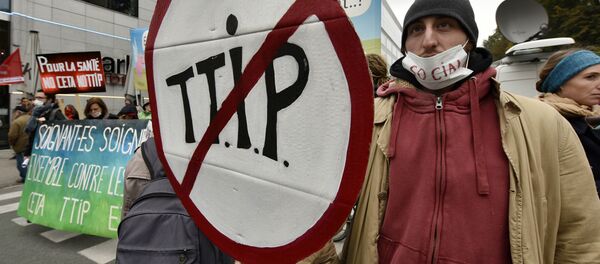Both petitions use the Dutch system, whereby 300,000 signatures are needed to force a referendum and, although the Ukraine one was started as a joke by a satirical magazine, the TTIP vote could prove more damaging and controversial.
The TTIP negotiations are due to create the biggest trade pact in the world, between the European Union and the United States. However, the talks have been beset by controversy — not least over the massive lobbying by multinational companies and worries that they are likely to be able to sue governments for loss of trade.
Dutch voters now demanding referendum on #TTIP https://t.co/8sYcjQOnu9 (sign here! https://t.co/ZNJ7q5GMNK) pic.twitter.com/LZYa9TypL6
— Hilde van der Pas (@HildevanderPas) 15 April 2016
Critics of the TTIP deal point to the fact the European food regulations are different from — and some say more stringent than — those in the US.
States Sued
Crucially, at the heart of the TTIP is a controversial proposal for an investor-state dispute settlement (ISDS) mechanism, which would allow companies to sue governments if their regulations or laws affected their profits. Thus, if a US multinational company lost profits because their product or service was banned by law for health or other reasons, they would be able to sue a government — or the EU — for loss of earnings.
#TTIP a warning from the Dutchhttps://t.co/ygKiyiyL0l
— The Diligent Truth (@DiligentTruth) 5 March 2016
Under ISDS, in April 1997 the Canadian parliament banned the import and transport of MMT, a gasoline additive, over concerns that it poses a significant public health risk. Ethyl Corporation, the additive's manufacturer, sued the Canadian Government for US$251 million, to cover losses resulting from the "expropriation" of both its MMT production plant and its "good reputation."
Tobacco giant Philip Morris is currently suing Uruguay and Australia over tobacco packaging and the Dutch insurance company, Achmea, is suing the Slovakia for trying to reverse health privatization.
Whoever said the European Union was about the people? #StopTTIP pic.twitter.com/qmjdQhYB2h
— Labour GO (@Labour4Go) 22 March 2016
The Dutch petitioners say:
"Large companies can sue governments in special tribunal. Europe will have to accept the often poorer American standards for consumer protection, social rights and environmental protection. Then we will see the introduction of US legislation in Europe without citizens or parliaments having any say over it."




